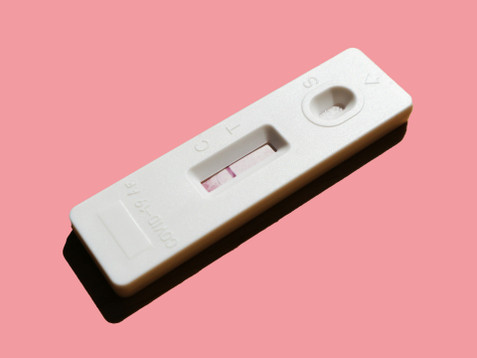The Truth About Fertility After 35: What Every Woman Should Know
Posted by Dr. Amanda Chay, ND on 2025 Jul 16th
A Natural Decline — But Not the End of the Story
When it comes to fertility, age truly is more than just a number. Starting in the mid-30s, a woman’s ability to conceive naturally begins to decline. This is mainly because both the number and quality of her eggs (oocytes) decrease over time.
Yet, more and more women are choosing to start their families later — and it’s important to know the facts so you can make empowered decisions.
What Are Your Chances?
If you're between 35 and 39, your chance of becoming pregnant within a year of regular, unprotected sex is still relatively good, though lower than in your 20s and early 30s.
- Ages 35–39: Chances remain reasonable, but patience may be needed (the largest study identified 85% of women would conceive in 12 months; with 25% chance per month in the first three months & 15% chance per month after this. In women aged 15-34 infertility rates were 7.3-9.1%, however this increased to 25% from ages 35-39 )1,2,3
- Ages 40–44: The chance of conceiving naturally drops to about 10–20% over a year. (with 30% chance of infertility in this age range)1,3
- Ages 45–49: The likelihood declines even further, to around 12%.
- Over 50: Spontaneous pregnancies are very rare.
It’s important to remember: while statistics can feel daunting, many women in their late 30s and early 40s do conceive healthy pregnancies — it just may take more time and planning.
Know Your Fertile Window (Most Women Don’t!)
Timing is everything. Yet studies show that fewer than 10% of women can correctly identify their fertile window — the days when pregnancy is most likely to occur.
Knowing when you ovulate can significantly boost your chances of conception. Tracking cycles, using ovulation predictor kits, or working with a healthcare provider can help take some of the guesswork out of the process.
You can only get pregnant approximately 5 days before ovulation and several hours after, therefore knowing when you ovulate is key! Emily Oster has a great chart that shows probability of conception by day that can be found here & here.
Options for Preserving Fertility
Worried about waiting too long? Thanks to advances in reproductive medicine, options like egg freezing (oocyte cryopreservation) are becoming more accessible.
This can be a good choice for women who want to delay pregnancy for personal, career, or medical reasons. However, availability and affordability can vary depending on where you live and why you're pursuing preservation.
Pregnancy After 35: What to Expect
While it is absolutely possible to have a healthy pregnancy after 35 (and even after 40), it’s important to be aware of the increased risks. Pregnancies later in life carry a higher chance of certain complications, including:
- Higher rates of miscarriage (due to chromosomal abnormalities often from lower quality eggs & sperm from aging; rates are approximately 10% for those aged 25-29, 57% for those ≥45, 11% age 30-34 years, 17% age 35-39, and 33% age 40-44)4
- Gestational diabetes
- High blood pressure
- Premature birth
- Chromosomal abnormalities
For this reason, women over 40 who are sexually active but do not want to become pregnant should continue using contraception.
Takeaway: Knowledge Is Power
Fertility after 35 doesn’t have to be a mystery — or a source of fear. By understanding how your fertility changes with age, learning about your body’s fertile window, and exploring options like egg freezing, you can take control of your family planning journey.
Above all, if you’re thinking about trying to conceive — now or in the future — talk openly with your healthcare provider. Together, you can create a plan that fits your goals and supports your health. Your health care provider can also help with testing various lab markers that can give you a better idea of egg quantity and hormone health. They can also advise you on diet, lifestyle, and supplements that have research to support fertility.
Disclaimer: The information in this article is for informational purposes only and is not medical advice. Always consult your doctor before making any changes to your health, diet, or lifestyle.
References:
- https://www.ncbi.nlm.nih.gov/books/NBK556033/
- GUTTMACHER AF. Factors affecting normal expectancy of conception. J Am Med Assoc. 1956 Jun 30;161(9):855-60.
- Chandra A, Copen CE, Stephen EH. Infertility and impaired fecundity in the United States, 1982-2010: data from the National Survey of Family Growth. Natl Health Stat Report. 2013 Aug 14;(67):1-18, 1 p following 19.
